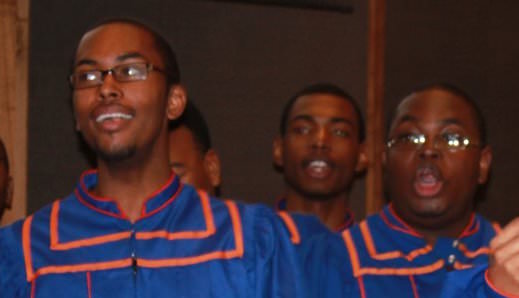Givonna Joseph implemented her “Language of Opera” residency with the 5th grade choir class at Behrman Charter School. During the 12 session residency, Givonna gave students an introduction to the history of opera, highlighting New Orleans as the first city of opera, and introducing students to notable classical composers and performers of African descent. Students created their own operetta based on current social issues, and presented their work for their families. The students chose to write and perform about the Trayvon Martin case, a very powerful topic of great interest to their peers.

The Language of Opera
Through this program, we discovered that students were more receptive to the art form of opera when it was connected to issues that are relevant in their lives. We also discovered that implementing an opera residency in the choir class rather than the language arts class provided additional support for students that might have been normally inhibited about singing in front of others.
At the start of the 12 session residency, students were unsure of how opera could relate to their lives, and were hesitant to sing in front of their classmates. Over the course of the residency, the students recognized the power of using opera to share information about issues that affect them or are culturally relevant.
The most notable conclusion was drawn from pre and post attitude surveys. Students were overwhelmingly more receptive to opera as an art form after the completion of the residency than they were at its start.
Opera provides a platform that allows students' to express their opinions and feelings on social issues more clearly, as they are able to manipulate language and express their thoughts and ideas through music and theater.
Collaborating with the choir teacher had a great impact on student confidence when singing in front of the class. However, employing the assistance of a language arts teacher during the actual writing of the libretto might have ensured a greater student understanding of language arts standards.
In the future, collaborating with the choir teacher as well as the language arts teacher might result in an even more successful residency.
As a result of the power the positive effect this residency had on our middle school aged students, we are confident that more of the urban schools we work with will be interested in incorporating opera into their residency offerings.
This toolkit article is the report of a case study conducted by Young Audiences Arts for Learning.
The original report can be found at the following page.


Leave a Comment